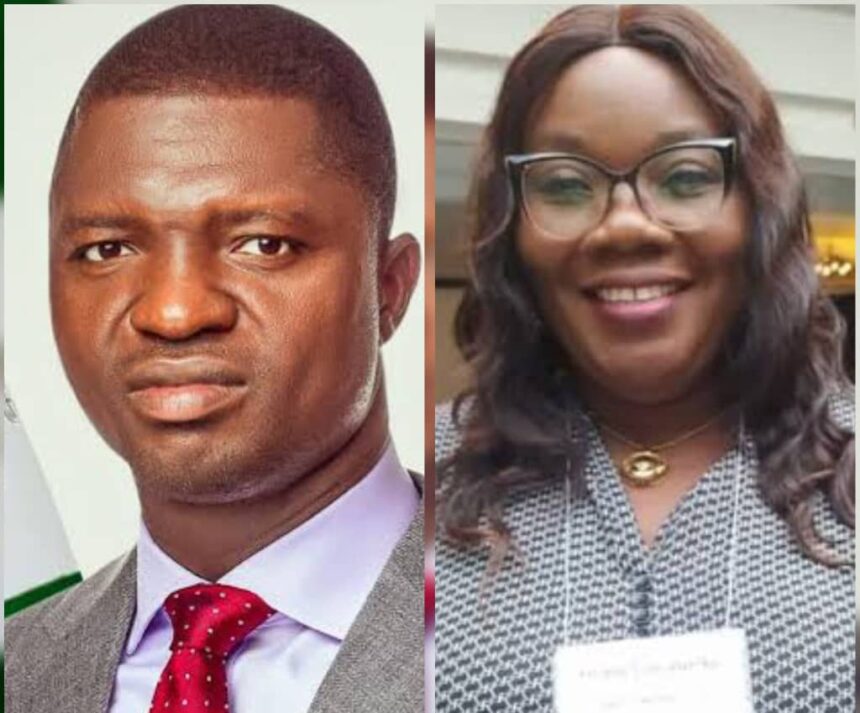A civil society organization, the African Economic and Social Cultural Initiative for Development (AEISCID), has called for an expanded investigation by the Economic and Financial Crimes Commission (EFCC) into what it describes as a longstanding pattern of financial mismanagement in Ebonyi State. The group issued a 48-hour ultimatum to Governor Francis Nwifuru to suspend the Secretary to the State Government (SSG) over alleged corruption, while urging federal authorities to probe both current and past administrations.
AEISCID alleges that the state has experienced widespread looting of public funds during Governor Nwifuru’s tenure, which began in 2023, and the preceding eight years under former Governor David Umahi. The group claims that contractors have played a significant role in the diversion of funds meant for public projects and essential services.
“Ebonyi cannot breathe because former Governor Umahi is still holding the state by the neck and his successor strongly by the balls,” said AEISCID’s President, Chinwe Oluchukwu. She accused the current administration of perpetuating a culture of impunity by failing to hold corrupt individuals accountable and allowing continued interference from the former governor.
According to AEISCID, the EFCC must widen its current investigation to include financial dealings spanning the last decade. The organization has vowed to monitor developments closely, emphasizing that no official implicated in the alleged misappropriation of state funds should be shielded from justice.
“We would follow through this matter till all the funds are not only recovered but those responsible for the alleged diversions are consequently brought to book,” AEISCID stated.
This ultimatum and demand for expanded scrutiny add to the growing pressure on Governor Nwifuru, who has already faced criticism for perceived weaknesses in governance and accountability. The group has previously accused him of failing to assert full control over state affairs, citing delays in appointing key officials and continued influence by his predecessor, Umahi.
Observers believe the present situation is symptomatic of deeper issues within the state’s political and administrative structure. AEISCID’s latest statement portrays a government that, in their view, is not just vulnerable to corruption but has also become complicit in enabling it.
The group insists that the EFCC must go beyond the immediate allegations and examine records of public spending, contract awards, and financial reporting mechanisms dating back to Umahi’s administration. AEISCID’s call for a wide-ranging probe reflects public frustration with a decade of what they term unaccounted financial flows in Ebonyi.
The Federal High Court is also expected to play a significant role in determining the legal trajectory of the investigations. The court’s final ruling, along with findings from the EFCC, may have far-reaching implications for political accountability and the credibility of leadership in the state.
The 48-hour deadline issued by AEISCID puts Governor Nwifuru in a difficult position. If he complies and suspends the SSG, it may signal a willingness to cooperate with anti-corruption efforts. However, refusal to act may further erode public trust and strengthen perceptions of government complicity.
The controversy comes at a time when many residents of Ebonyi are calling for transparency, stronger institutions, and an end to political interference in governance. AEISCID’s accusations have ignited fresh debate over the real influence that former Governor Umahi still holds over the affairs of the state.
While Umahi has not responded publicly to these latest allegations, his continued presence in national politics, including his role as a federal minister, has led to speculation that his reach into state matters remains substantial. AEISCID maintains that meaningful reform in Ebonyi cannot occur without fully severing ties to the legacy of what they describe as financial recklessness and administrative manipulation.
As the EFCC begins its inquiry, many are watching to see if this investigation will mark a turning point for accountability in Ebonyi or if it will follow the path of past probes that ended without convictions or recovered funds.
The outcome of this situation could reshape the political landscape in the state and determine whether public institutions will finally be strengthened or continue to serve entrenched interests.





